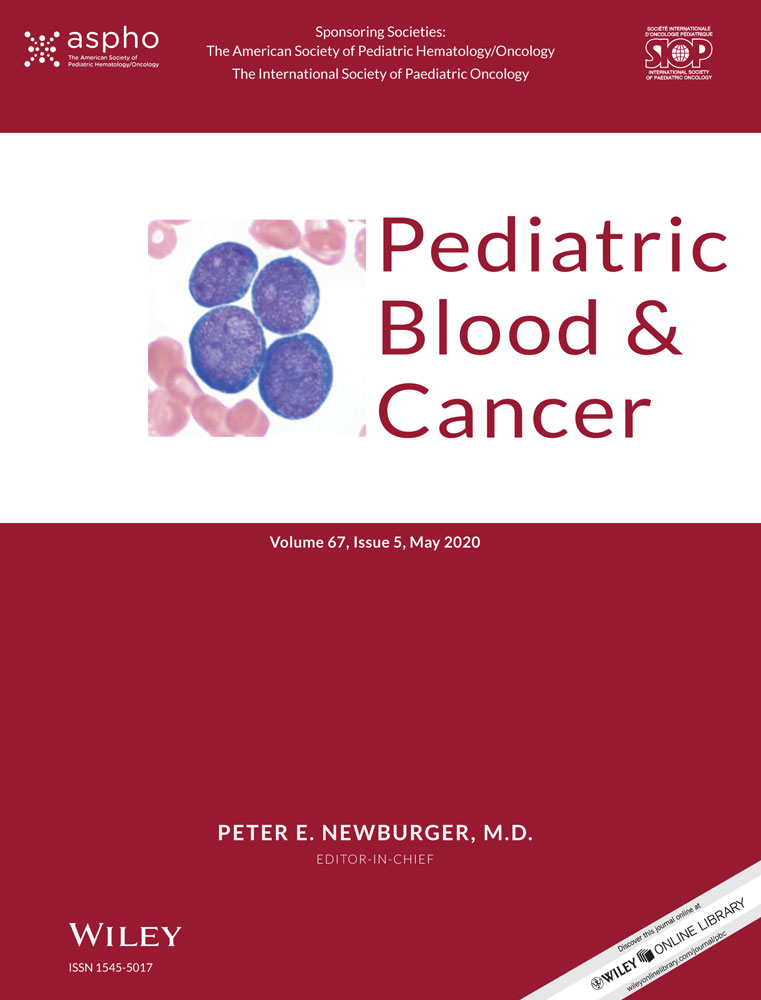Results from an international phase 2 study of the anti-CD22 immunotoxin moxetumomab pasudotox in relapsed or refractory childhood B-lineage acute lymphoblastic leukemia
Abstract
Background
In a multicenter phase 1 study of children with relapsed/refractory acute lymphoblastic leukemia (ALL), moxetumomab pasudotox, an anti-CD22 immunotoxin, demonstrated a manageable safety profile and preliminary evidence of clinical activity. A phase 2 study further evaluated efficacy.
Procedure
This international, multicenter, phase 2 study enrolled children with relapsed/refractory B-cell precursor ALL who received moxetumomab pasudotox 40 µg/kg intravenously every other day, for six doses per 21-day cycle. The primary objective was to evaluate the complete response (CR) rate. Secondary objectives included safety, pharmacokinetics, and immunogenicity evaluations.
Results
Thirty-two patients (median age, 10 years) were enrolled at 16 sites; 30 received study drug and were evaluable for safety; 28 were evaluable for response. The objective response rate was 28.6%, with three patients (10.7%) achieving morphologic CR, and five patients (17.9%) achieving partial response. Disease progression occurred in 11 patients (39.3%). Ten patients (33.3%) experienced at least one treatment-related serious adverse event, including capillary leak syndrome (CLS; n = 6), hemolytic uremic syndrome (HUS; n = 4), and treatment-related death (n = 1) from pulmonary edema. No differences were observed in inflammatory markers in patients who did or did not develop CLS or HUS.
Conclusions
Despite a signal for clinical activity, this phase 2 study was terminated at interim analysis for a CR rate that did not reach the stage 1 target. Preclinical data suggest enhanced efficacy of moxetumomab pasudotox via continuous infusion or in combination regimens; thus, further studies designed to optimize the efficacy and safety of moxetumomab pasudotox in pediatric ALL may be warranted.
CONFLICTS OF INTEREST
This study was sponsored by AstraZeneca. N.N.S., D.B., K.A, Y.B., J.B., L.D.-P., R.D., N.H., F.L., F.M., J.M., C.S., and I.P. have no conflicts to disclose. M.L., K.B., X.L., and I.V. are employees of AstraZeneca and own stock or stock options in the company. N.S.Y. was an employee of AstraZeneca at the time of this research and owns stock in the company. A.B. has received personal fees from AstraZeneca, Celgene, Jazz Pharmaceuticals, and Novartis, and has received research grants and personal fees from Institut de Recherches Internationales Servier (Servier). P.L.M. has received grants from AstraZeneca, Jazz Pharmaceuticals, and Novartis. S.R.R. has received research grants from Pfizer Inc. T.M.T. has been a consultant with Seattle Genetics and Amgen. A.S.W. has received research funding from AbbVie, AstraZeneca, Kite Pharma, Servier, and Spectrum Pharmaceuticals, and has served on an advisory committee for Servier.
Open Research
DATA AVAILABILITY STATEMENT
The clinical data set analyzed during the current study is available at clinicaltrials.gov, https://clinicaltrials.gov/ct2/show/NCT02227108. Other data sets used and/or analyzed during the current study are available and may be obtained in accordance with AstraZeneca's data sharing policy, which is described at https://astrazenecagrouptrials.pharmacm.com/ST/Submission/Disclosure.




